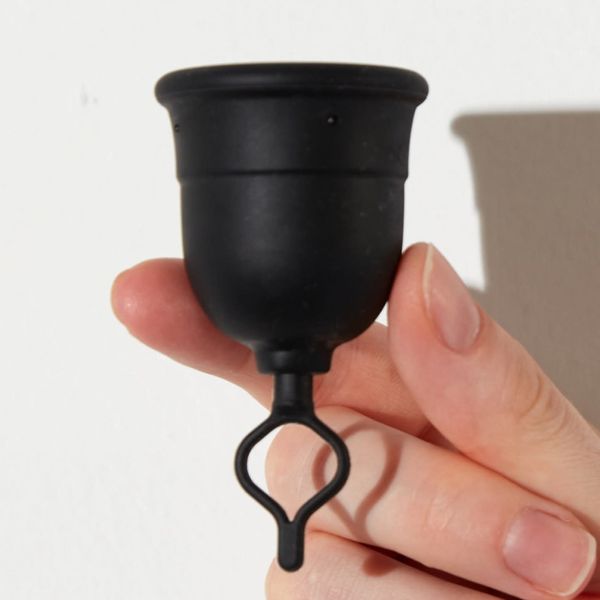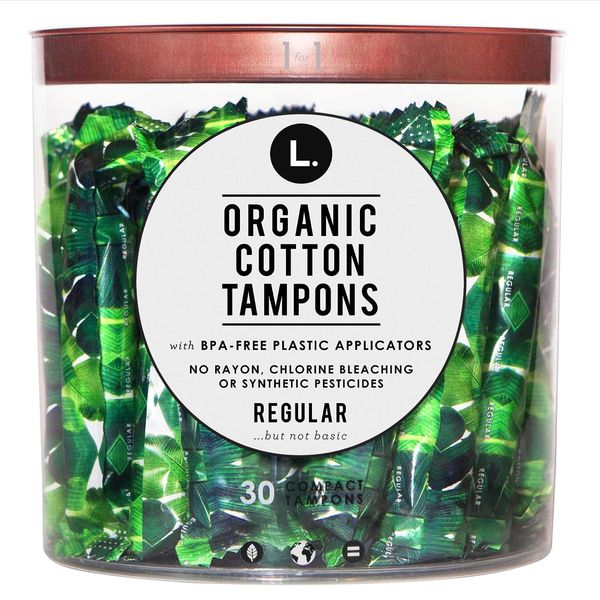
Many trans people have complicated feelings about the “feminine hygiene” aisle. The products found there often have extremely gendered packaging, don’t always work the way we might need them to, or can just bring back bad memories from puberty.
While many on testosterone will stop menstruating, plenty will continue to bleed, especially those of us on lower doses. Even if your periods have stopped, missing a dose of your regular testosterone due to a lapse in health insurance or a delay at the pharmacy can make you start bleeding again. It’s also worth noting that there are plenty of trans men and nonbinary folks who aren’t on testosterone for medical reasons, because they lack access to affirming health care, or simply out of personal choice.
There are a few other things trans people should keep in mind about menstruation, according to Dr. Izzy Lowell, the founder of QueerMed, a Georgia-based practice dedicated to providing gender-affirming care around the country. The first is that birth control might be a good way to manage periods and can be taken alongside testosterone. “The side effects are similar to what one would experience on birth control alone, except that some of those are mitigated by testosterone.” She also emphasized that periods are not supposed to destroy your life. It can be hard to know when to be concerned about our gynecological health, especially if it’s something that’s difficult to even think about because it causes you dysphoria, but Dr. Lowell urges people to talk to their doctor if they have any questions. Especially if your emotions are overwhelming and detract from your daily life, you have pain that stops you from working or doing things you enjoy, or you’re bleeding heavily (which Dr. Izzy defines as needing to change a tampon more than once every two hours for more than one day or any bleeding that lasts longer than six days). If you’ve brought up these problems with a physician and didn’t feel listened to, try again with someone you can trust. Both the World Professional Association for Transgender Health (or WPATH) and TransPulse, a suicide-prevention site that collects resources for trans folks, have lists of trans-friendly physicians you could reach out to.
Then there’s the question of finding the right menstrual products. If you’re one of the many trans people who feel dysphoric about menstruation itself, the gendered packaging of many period products can be a no-go. If you usually use men’s restrooms (and have no or limited access to gender-neutral bathrooms), then period products with loud wrappers or that require a waste bin in the stall might be a nonstarter. Some trans folks just aren’t okay using insertable products (like tampons or cups) but struggle to find pads that can keep up with their flow. Researching menstrual products can also be a recipe for dysphoria when you don’t see yourself represented in any of the reviews or models. As one trans nonbinary friend of mine put it, “I know there are other options out there, but that would require thinking about it and I just don’t want to think about it, if I’m honest.”
To help us all out, I spoke with a dozen trans men and nonbinary people who bleed. Here are their recommendations. (A note about language: for clarity and consistency, we are using the words “menstruation” and “periods.” We acknowledge that these are not universal and other terms like “bleeding” may be preferred.)
Absorbent Underwear
ModiBodi knows that everyone (whether you menstruate or not) can sometimes benefit from absorbent underwear. The company got its start making underwear to help with light incontinence for women but has since expanded to include lines for men, period underwear, and adaptive underwear for folks with mobility issues. ModiBodi’s products come in seven different absorbency levels ranging from a moisture-wicking 0 ML to a whopping 250 ML (for context, 50ml is about eight tampons’ worth). Its website features models of different genders and sizes, as you can see with its Pride Longline Short. This is also one of the few pairs of period underwear I found with a fun (and delightfully queer) pattern. ModiBodi also has a great reputation for sustainability, and its products have been independently tested and found to be free from PFAS and other toxic chemicals that have been found in other brands.
Tomboyx’s First Line leakproof period underwear is less bulky than other period underwear brands but has less absorbency. It’s perfect for light days or as backup with a tampon or cup. Something I love about its period underwear is the unique “floating gusset” design: The extra cloth sewn into the crotch is attached at the top and bottom instead of the sides, so you can wrap the wings of a pad around it. If you’ve longed to be able to wear trunk-style underwear and still be able to use pads, this is the solution!
(One thing worth noting is that some of the company’s products say ‘Tomboy’ on the waist band, which might not work for everyone; as one trans man told me, “I’m glad it exists, but I wouldn’t want it for myself. I’m not a ‘tomboy’; I’m a man.”)
Formerly known as LunaPads, Aisle offers a range of period underwear and reusable pads that are environmentally friendly and third-party tested to be free of PFAS and other harmful chemicals. Aisle’s underwear also comes with an extra booster insert for more absorbency, which several friends of mine brought up as a great way to meet your needs as your flow changes.
Cloth Pads
In the long run, reusable cloth pads are cheaper, more environmentally friendly, and often more comfortable than the disposable pads you can buy at a drugstore. Like period underwear, the main downsides are a higher initial cost and the time you’ll need to wash them.
“Reusable fabric pads are like magic,” says Dani Aiden Stone, a genderqueer activist. “They made my period so easy to deal with.” Stone has been using fabric pads from Gladrags for the last 15 years. Its pads are 100 percent cotton and free from chemical additives. You can also layer them, Stone notes: “Just snap on some more fabric pads on top of a larger one.”
If you just can’t find the Goldilocks of pads, making your own is always an option. Versodile over on Etsy has a huge range of patterns for pads of every size, including in fun shapes like bears and sharks. You can also find free patterns online for a more simple pad. This is probably the most labor-intensive option, but it might be worth checking out if you’re more DIY-inclined.
Menstrual Cups
Menstrual cups had the most enthusiastic recommendations from folks I chatted with. They’re reusable, high capacity, and lots of people mentioned being able to forget they were even on their period while using one. While the Diva Cup is relatively easy to find in stores, the brand’s name is prominent on the cup itself and I personally find it dysphoric to see the word “DIVA” while I’m rinsing and washing the cup. Lunette’s branding is pretty gender neutral, and the cup itself is available in a wide variety of colors.
The downsides of any cup are that you have to be comfortable inserting something into your vagina and washing it in a public restroom can be awkward, especially if you use the men’s room. It’s worth noting that although many brands do offer non-flushable wipes you can buy to clean the cup in the privacy of your own stall, you’re still left with the problem that most men’s rooms don’t have waste bins in individual stalls.
Another downside to most cups is that they aren’t friendly to some people with disabilities. Models like the Flex Cup were designed with limited mobility in mind and feature a pull tab that breaks the suction for you, requiring less dexterity and flexibility than other brands.
Tampons and Disposable Pads
In general, organic or all-natural options tend to have less-gendered packaging. These L. Organic Cotton Compact Tampons are well reviewed and relatively easy to find in big box stores like Walmart, Target, Safeway, and Walgreens. (And while tampons are great if you’re looking for an insertable option that’s relatively foolproof, again it’s worth noting most men’s rooms don’t have waste bins in the stalls, so disposing of one in public may require some creativity.)
Organic and all-natural pads are less likely to contain harmful chemicals (such as PFAS) and fragrances that can irritate the skin. A lot of reviewers on Amazon and YouTube noted that the packaging of these pads makes minimal crinkling sounds when opened, which might be a plus if you’re in a men’s room. If you’re a wheelchair user, sit a lot, or have a heavy flow, you may prefer the extra-long pads.
More From This Series
- How to Safely Skip Your Period
- Is Your Body Out of Sync With a Man’s World?
- What We Still Don’t Know About Heavy Flow












